#MPG
This Is What Mazda EPA MPG Results Will Look Like With Skyactiv-X HCCI Engines (Asterisk, Fine Print, Subject To Change)
Mazda announced on August 8th what had long been rumored. The small Japanese automaker has successfully overcome the remaining issues which held at bay mass production of gasoline compression ignition.
Essentially, Mazda’s Skyactiv-X engines, due first in the next-generation 2019 Mazda 3, is intended to bring diesel-like ignition to small, supercharged four-cylinder engines, along with diesel-like fuel economy. However, the gas-fired Skyactiv-X engines will be wildly cleaner than diesel powerplants. Mazda has said in the past that these HCCI engines will likely limit the need for continuously variable transmissions. We also learned, with Mazda’s latest pronouncement, that the company’s Skyactiv-X engines will be significantly torquier than their Skyactiv-G predecessors.
If Mazda can live up to its pronouncements — the company says the engines are “still under development and figures are subject to change” — it’ll be a win for both the environment and driving enthusiasts. And because Mazda also claims a 20-30-percent improvement in fuel efficiency, it’ll be a win for your bank account, as well.
We wanted to see exactly where Mazda’s alleged fuel savings will put Mazda’s current products on the EPA’s miles per gallon scale, so here are the results of some quick math.
No Diesel Required: 2017 Audi A4 2.0T Ultra Does 37 MPG Highway
With front-wheel drive, a 2.0-liter turbocharged four-cylinder engine, and a seven-speed dual-clutch transmission, the all-new 2017 Audi A4 Ultra’s EPA highway fuel economy figure is 37 miles per gallon.
Audi says, “No other luxury sedan in its competitive segment offers higher EPA-estimated city or highway mileage” than the new fuel-sipping A4, which the Environmental Protection Agency rates at 27 mpg in the city and 31 mpg combined.
The EPA scores the rear-wheel-drive BMW at 32 mpg city and 42 highway and the 330e at a combined 72 mpge equivalent. Audi presumably excluded these non-entry-level, uniquely powered models from the “competitive segment” definition.
Piston Slap: Greenwashing the Fuel of the Devil?
BT writes:
Why aren’t we seeing diesel/electric hybrid cars and light duty trucks? Wouldn’t the fuel economy be phenomenal? Gas hybrids do well in their own right, as do diesels. So what’s holding up the diesel/electric Passat? Many cities have gone to diesel/electric buses for fuel savings, so we know the technology is real for passenger vehicles. Is the combined torque simply too much for mere mortals to use responsibly?
What gives, Sajeev?
2016 Smart Fortwo Won't Hit Magic 40 MPG
The next-generation Smart Fortwo, expected to go on sale in North America shortly, won’t achieve the magical 40-mpg benchmark in highway driving, reports Car & Driver.
Fuel economy for the Mercedes microcar will stay similar to the current generation at 33 mpg city and 39 mpg highway when equipped with the automatic transmission. Manual models will get the same highway fuel economy, but give up 1 mpg on the city cycle.
Golf TDI Makes Lap of US on $300 of Diesel
Volkswagen’s Golf TDI traveled more than 8,200 miles around the lower 48 states on less than $300 of diesel in 16 days, the automaker said today.
The 16-day trip around the U.S. set a narrowly-defined world record for “lowest fuel consumption — 48 U.S. contiguous States non-hybrid car” by averaging 81.17 mpg in the Golf TDI. The car was driven by automotive journalist Wayne Gerdes and electronics engineer Bob Winger.
Quick math: If the duo averaged 15 hours of driving per day, the pair managed an average speed of 34.306 mph throughout the entire journey.
Analysis: EPA Revising Fuel Economy Testing Guidelines
After a series of scandals involving incorrect fuel economy ratings, the EPA is revising its self-reporting guidelines for auto maker fuel economy standards, in a bid to ensure greater accuracy in the real world.
Quick Look: 2015 Jeep Renegade
Chrysler has been on a steady upswing since the dark days of bankruptcy. Throughout its merger with Fiat, each model has been updated or completely replaced. Jeep has been the shining star of the core brands, selling every Grand Cherokee and Wrangler they can make. Even the controversially styled Cherokee has been fairly well receieved. The next vehicle in the Jeep lineup will be the small Renegade, designed to attract “a new wave of youthful and adventurous customers around the world to the brand.” We concur.
Piston Slap: A Rather Thirsty Escort?
TTAC Commentator Weltron writes:
Hi Sajeev!
The car I am writing about today is my winter beater, which is a 1999 Ford Escort SE sedan which says it has a tick over 155,000 miles. The problem I’m having with it is it it getting dreadful gas mileage. My average tank is about 19 miles to the gallon (in comparison that is what my twin turbo straight six Volvo gets around town). Over the winter I replaced both of the o2 sensors and got a marginal improvement (about .4 mpg).
And here’s the kicker: the dumb thing runs perfectly. No error codes or anything. Idles smooth and everything (well as far as Escort refinement goes). When I go on the highway (which is fairly often) I can see upward of 21… If I’m lucky.
EPA Mandates Real-World Testing For All Automakers
In light of re-estimated mileage per gallon claims by Ford, Hyundai and Kia, the Environmental Protection Agency seeks to prove the claims of all automakers through real-world testings.
2014 Ram 1500 EcoDiesel Pulls 28 MPG Highway
Truck Mountain may still be held by the soon-to-be-lightened Ford F-150, but the fuel-efficiency battle in the valley below is already underway, thanks to Ram’s 1500 EcoDiesel pulling the highest mile-per-gallon highway rating of any light truck in the United States at 28 mpg.
Editorial: Time For Fuel Economy Reform
The revised fuel economy ratings for the Ford C-Max aren’t the first time that an auto maker has been forced to backtrack on fuel economy claims – nor will it be the last unless meaningful reform is undertaken to ensure that fuel economy figures more accurately reflect the way motorists drive their cars in the real world.
EPA Confirms: America's Most Fuel-Efficient Cars Are Not American
Fuel economy of vehicles sold in the U.S. is on the rise, recording the sharpest gains in almost four decades, an annual report by the EPA shows. Foreign automakers have the most efficient fleets.
The EPA report shows an average 16 percent gain in fuel efficiency for in the past five years, to 23.8 miles per gallon. The EPA’s list is led by foreign carmakers, with Detroit sharing the bottom places with purveyors of thirsty performance cars.
Did Government Meddling Cripple The Dodge Dart?
As we come to yet another hiccup in the launch of the Dodge Dart, it’s worth taking a look backwards to examine how we got to this point; the elimination of a second shift at the Dundee, Michigan plant that builds the Dart’s 1.4L FIRE engine, as well as the firing or re-assignment of 58 workers.
As both Ronnie and Michael Karesh noted, the same 1.4T FIRE engine that’s so delightful in the Fiat 500 Abarth is weaksauce in the Dart. The 1.4T’s clunky dual-clutch auto doesn’t help matters either. If it weren’t for government mandated fuel economy targets imposed as a condition of the bailout, that engine – and possibly the Dart – wouldn’t even be here right now.
Survey Says: Detroit Can't Shake The Drinking Habit - Blame The Enablers!
Demand for fuel-efficient vehicles remains strong, and the fleet of newly bought cars is taking to the streets getting a better mileage on average than a year before. The cars sold by Hyundai/Kia are most miserly with their fuel, with Volkswagen close behind. Automobiles from Detroit on the other hand stay thirsty. This is the result of TrueCar’s TrueMPG survey.
Fuel Fiasco Mk II: Consumer Reports Fingers Ford
If you know how to listen and who to listen to, you have heard for weeks that Hyundai is not the only one with overenthusiastic EPA ratings, and that other car companies might soon have to restate their MPG numbers. The carmaker mentioned most often in those whispers was Ford. Today, Consumer Reports magazine said that Ford’s C-Max and Fusion hybrids fall about 20 percent short of their fuel economy claims.





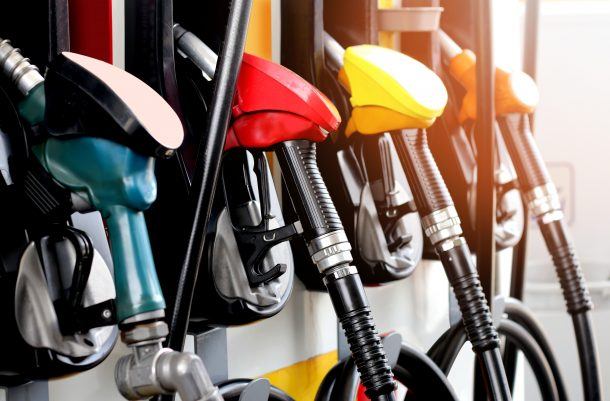


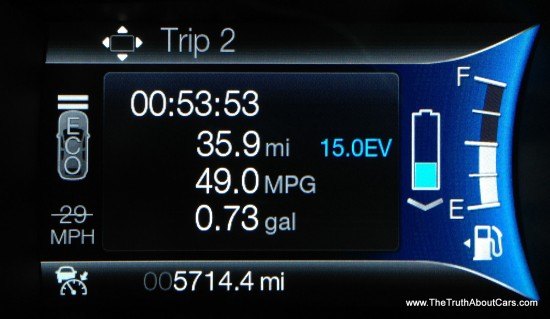

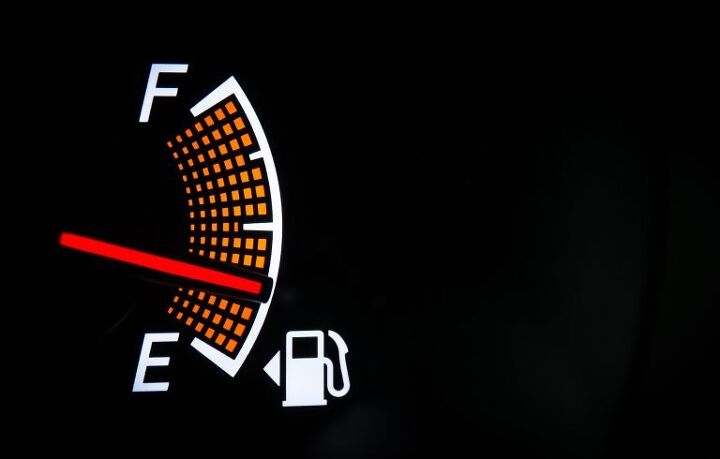


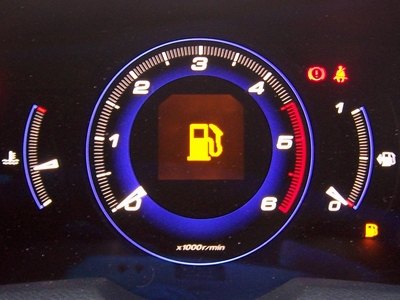

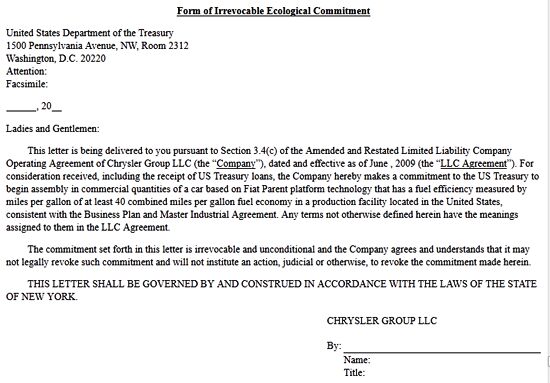
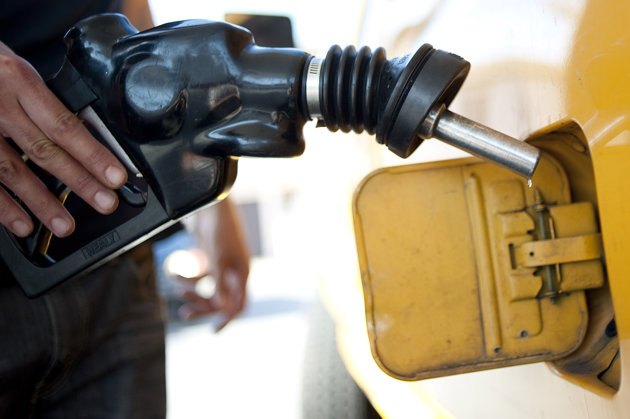
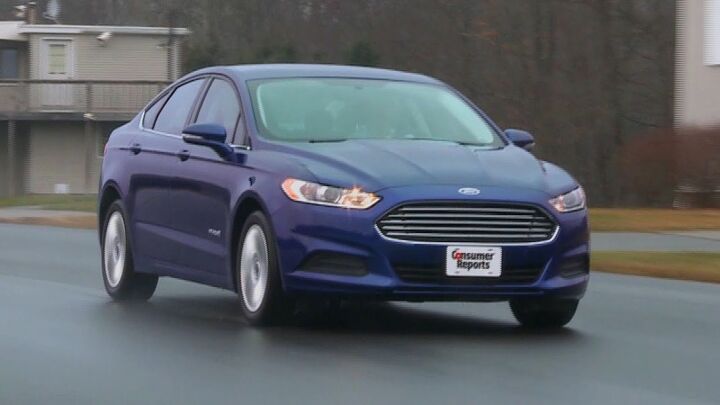












Recent Comments